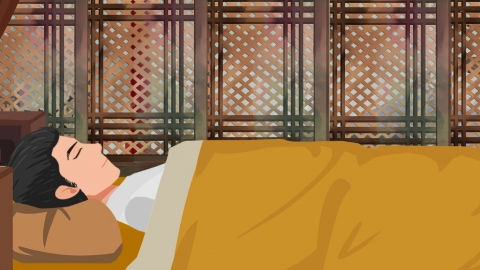What could be causing me to sweat five or six times during sleep at night?
Generally, experiencing five or six episodes of sweating at night may be caused by factors such as a hot and stuffy sleeping environment, improper diet before bedtime, menopausal syndrome, hyperthyroidism, or tuberculosis. It is recommended to seek medical attention promptly, identify the underlying cause, and receive symptomatic treatment under a doctor's guidance. Specific analyses are as follows:

1. Hot and Stuffy Sleeping Environment: Excessively high bedroom temperature or overly thick bedding can impair body heat dissipation, leading to frequent night sweats. Adjust the bedroom temperature to 22–24°C, choose breathable and sweat-absorbent cotton bedding, and open windows before sleep to improve air circulation.
2. Improper Diet Before Bedtime: Consuming spicy foods, strong tea, or alcoholic beverages before sleep can stimulate increased body heat production, making night sweats more likely. Avoid eating within 3 hours of bedtime; instead, drink mild beverages such as warm water or warm milk, and reduce intake of spicy and stimulating foods.
3. Menopausal Syndrome: In women, declining ovarian function and fluctuating estrogen levels can disrupt vascular dilation and constriction, resulting in excessive night sweating. Patients may take medications such as estradiol valerate tablets, nylestriol tablets, or tibolone tablets as prescribed by a physician, while maintaining emotional stability and regular daily routines.
4. Hyperthyroidism: Excessive secretion of thyroid hormones accelerates metabolism and heat production, causing frequent night sweats and heat intolerance. Patients may take medications such as methimazole tablets, propylthiouracil tablets, or carbimazole tablets under medical supervision. Radioactive iodine therapy may be necessary when indicated to suppress hormone secretion.
5. Tuberculosis: Infection with *Mycobacterium tuberculosis* causes low-grade fever. During nighttime, an imbalance between heat production and dissipation in the body leads to frequent night sweats (commonly known as "night sweats"). Patients should take medications such as isoniazid tablets, rifampicin capsules, and pyrazinamide tablets as directed by a physician, following the principle of early, combined, and full-course treatment for standardized management.
Routine lifestyle measures include maintaining regular sleep patterns, avoiding late nights, and refraining from intense physical activity before bedtime. A balanced diet rich in vegetables and fruits to supplement vitamins is recommended, along with moderate exercises such as walking or tai chi to strengthen the body and reduce the frequency of night sweats.










